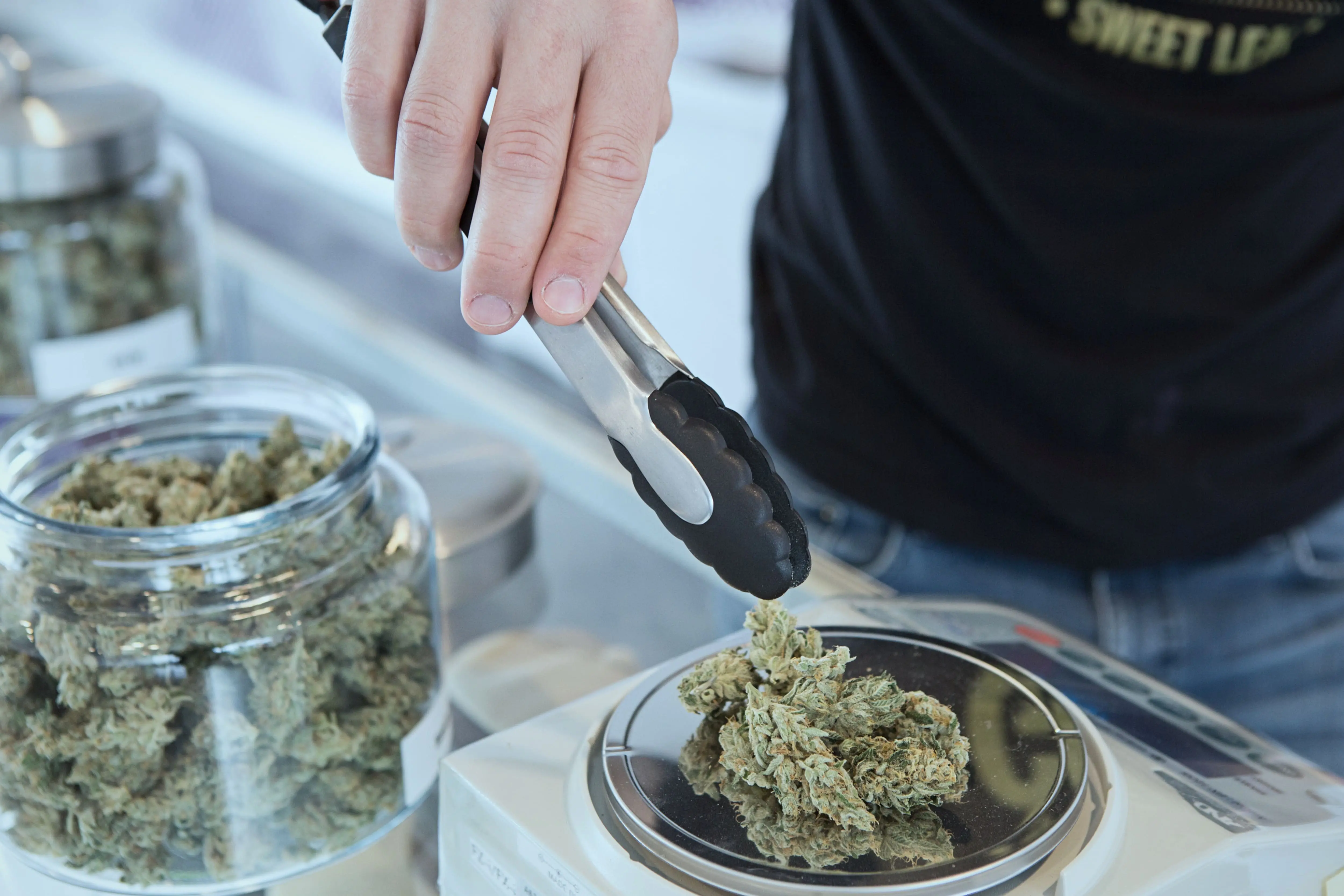Politics
D.C. Medical Marijuana Registrations Surged In July After ‘Self-Certification’ Law Took Effect, Data Shows

Washington, D.C. residents have wasted no time taking advantage of a new law that allows people to “self-certify” as medical marijuana patients that took effect in early July, with officials releasing data that shows a significant spike in registrations last month now that people no longer need a doctor to sign off to join the program.
The District’s Alcoholic Beverage Regulation Administration (ABRA) posted the monthly figures on Thursday. More than 1,200 people registered to become cannabis patients in July, for a total of 15,730.
While it’s not clear how many of those patients self-certified since Mayor Muriel Bowser (D) signed the District Council-passed bill into law on July 6, last month saw the largest jump by far in registrations this year. Registrations have been steadily increasing, but most months have only seen a few hundred additional patients.
💹 Medical cannabis program stats for July 2022 are now available. https://t.co/iA9BtTZDsU
— DCGov_ABRA (@DCGov_ABRA) August 18, 2022
From June to July, medical marijuana patient registrations increased from 14,468 to 15,730—roughly nine percent growth.
Since the beginning of this year, the next largest bump in registrations took place from March to April, when the number grew by 403 patients, from 13,445 to 13,848. That was a three percent difference.
Observers expected to growth in patient registrations with the self-certification option, as the proposed policy change received significant attention. What it does is effectively allow D.C. to circumvent a congressional spending bill rider that’s blocked the local government from using tax dollars to implement adult-use marijuana sales.
Voters approved recreational legalization at the ballot in 2014, but that rider from Rep. Andy Harris (R-MD) has served as a consistent barrier to seeing through the will of voters.
Bowser, U.S. Rep. Eleanor Holmes Norton (D-DC) and other elected officials in the city have routinely criticized Congress for singling out the District and depriving it of the ability to do what a growing number of states have done without federal interference. Lawmakers and advocates have also expressed disappointment over the fact that President Joe Biden has included the rider in his last two budget requests despite saying he supports D.C. statehood.
—
Marijuana Moment is tracking more than 1,500 cannabis, psychedelics and drug policy bills in state legislatures and Congress this year. Patreon supporters pledging at least $25/month get access to our interactive maps, charts and hearing calendar so they don’t miss any developments.
![]()
Learn more about our marijuana bill tracker and become a supporter on Patreon to get access.
—
There’s a chance that the spending provisions could be eliminated as part of Fiscal Year 2023 appropriations legislation, but the District Council decided to take matters into their own hands in the interim with the self-certification bill.
Norton told Marijuana Moment in a phone interview last month that she’s “fairly optimistic” that the rider will not be included in the final spending package. She added that the D.C. self-certification policy is an “effective workaround” until then.
A similar bill that would have also provided the cannabis self-certification process was narrowly defeated in April. But the reason for its rejection was largely related to separate provision’s in Chairman Phil Mendelson’s (D) measure that would have cracked down on unlicensed businesses that are using existing policy to “gift” cannabis to people who purchase unrelated products and services.
Those enforcement provisions were not included in the enacted law, but the issue was addressed in a resolution attached to the measure.
It notes that there are “lower barriers to access” at “gray” market suppliers, because an unregistered person could simply buy a non-cannabis items in exchange gifted marijuana, without going through the application and certification process to access licensed dispensaries.
There are also safety risks in that market, the legislation noted, because products aren’t subject to quality control standards as in the existing medical cannabis program.
The patient self-certification provision of the measure represents a significant expansion of another piece of legislation enacted into law this year that allows people 65 and older to self-certify for medical cannabis without a doctor’s recommendation.
Meanwhile, the mayor signed a bill last month that bans most workplaces from firing or otherwise punishing employees for marijuana use.
The reform is designed to build upon on a previous measure lawmakers approved to protect local government employees against workplace discrimination due to their use of medical cannabis.
Missouri Officials ‘Begin Planning’ For Marijuana Legalization Now That Reform Is On The Ballot



